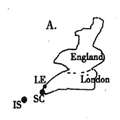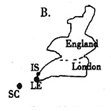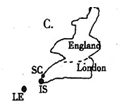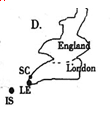题目内容
[1]It's safe, it's simple, and it works: Drinking right amounts of water really can help you lose weight, new research shows.
[2]In what researchers claim is the first-ever trial of the effect of water consumption on weight loss, scientists from Virginia Tech found that dieters who started each meal with two glasses of water lost nearly five pounds more, on average, than dieters who did not, over the course of 12 weeks.There's no shortage of clear evidence about how water might work to control your appetite(食欲).It ________________ so you don't eat so much; it keeps down your thirst so that you don't turn to calorie-rich sodas or juices.But until now, the researchers say, there has been no true evidence that water's appetite-controlling benefits ever translate into actual weight loss.Now there is. In the 12-week study period, dieters instructed to drink water with every meal lost an average of 15.5 pounds; dieters given no instructions lost, on average, just 11 pounds.
[3]Perhaps the most surprising thing about the finding is how little we still know about healthy water consumption in general.In fact, although doctors and public health authorities regularly remind us to drink more water, very few studies give any insight into what our ideal quantity may be.
[4]The new results today suggest that many people could indeed stand to drink a little more water than they do.But if you're looking to lose weight, be aware that it is actually possible to drink too much water, and you probably won't help matters any by drinking too much water at a time.In extreme cases, it can even be deadly.A couple of glasses with each meal, however, should be no problem at all for a healthy person.
1.. What is the main idea of the text?(no more than 8 words)
____________________________________________________________________________
2...Complete the following statement with proper words.(no more than 2 words)
Enough obvious evidence ________________ how your appetite might be under the control of water.
3.. Fill in the blank in Paragraph 2 with proper words.(no more than 3 words)
____________________________________________________________________________
4.. Why should we avoid drinking too much water at a time?(no more than 6 words)
___________________________________________________________________________
5...What does the word "it" (Line 1, Paragraph 1) probably refer to?(no more than 6 words)
___________________________________________________________________________


【解析】 略





